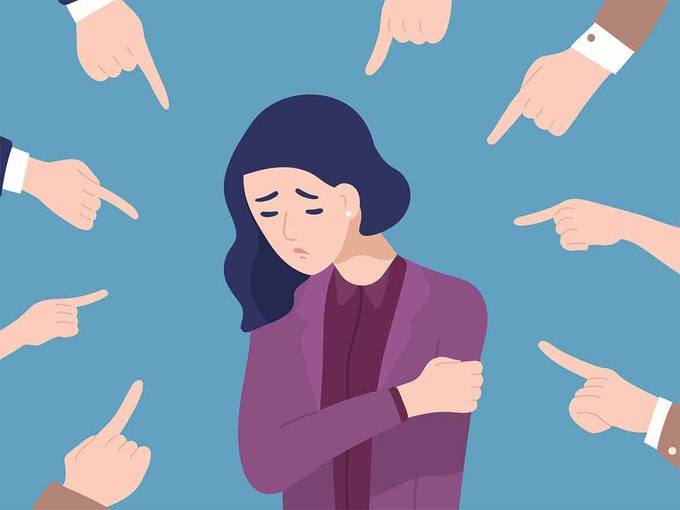How to Manage Your Anxiety Triggers
Do large crowds leave you exhausted and overwhelmed? Here’s how to cope during the busy holiday season.

Bright lights, loud noises and crowds trigger my anxiety. Is this normal?
Anxiety symptoms (accelerated heart rate, shortness of breath, sweating) are part of the fight or flight response that’s triggered when we sense danger. It’s a biological reaction that’s deeply encoded in our DNA, stemming from ancient days spent avoiding predators. Although we face far fewer physical threats today, anxiety still serves the same self-preservation purpose.
That means that, yes, sometimes this response can be triggered by everyday situations, like overstimulation and sensory overload. Knowing what triggers an anxious response and what to do can be integral for managing anxiety. (In some cases, a medical condition may be triggering your anxiety.)
Elizabeth says…
A few weeks ago, I boarded a plane back from New York City. I was immediately struck by the heat in the cabin, but assured myself the air would be turned on shortly. A half hour later, we still hadn’t taken off, the air conditioning was broken, it was unbearably hot, and I was in full-blown panic mode. I started to hyperventilate and cry, convinced I was trapped and would die on that plane. Luckily, my husband was there and he helped me to focus on slowing down my breathing and realizing it was extremely unlikely that my fears would come true. Within a few minutes, my flight instinct had dissipated and I was able to manage until the air situation was resolved.
Anticipating some of my anxiety triggers (like heat) can be helpful, but it’s not always possible to avoid them. What I learned from my airplane situation was that keeping a “tool box” equipped with coping mechanisms is always a good idea. The next time I encounter a fight or flight-inducing situation, I’ll practice my breathing exercises, use a mindfulness app on my phone, and practice some cognitive behavioural therapy strategies which help reframe overwhelming negative thoughts (I am trapped on this plane) into positive ones (if the air can’t be fixed, we will be able to disembark).
Lisa says…
Anxiety is one of the leading presenting mental health conditions in my psychotherapy practice, affecting teens, women and men with equal measure. Often, the triggers my clients experience are fairly typical, such as work stress, relationship struggles or living with an illness. But anxiety isn’t one size fits all, and triggers can vary widely. For example, I have several clients for whom crowded spaces, bright lights or even multitasking can induce a fight or flight response. Of course, avoiding these triggers can prevent the anxiety, but that’s not always practical. So if, for example, a client wants to see a favourite band in concert but is concerned about the crowds, I would encourage her to have a plan in place which might involve choosing an aisle seat, being aware of exits and finding a relatively quiet place where she can escape should she begin to feel overwhelmed.
Be honest with yourself, acknowledge your anxiety triggers and keep a record of them. Work with a therapist to help uncover the underlying causes and learn coping techniques, such as cognitive behavioural therapy, mindfulness and breathing exercises that will help you in anxiety-provoking situations. Know your boundaries, enforce them and don’t beat yourself up if you begin to feel overwhelmed. The key is to be prepared and proactive.
Don’t miss 10 things every psychologist wishes you would do.
Elizabeth Wiener is an educator who lives with depression and anxiety. Lisa Brookman is a clinical psychotherapist based in Montreal. Together, they form WiseWomenCanada.com.




